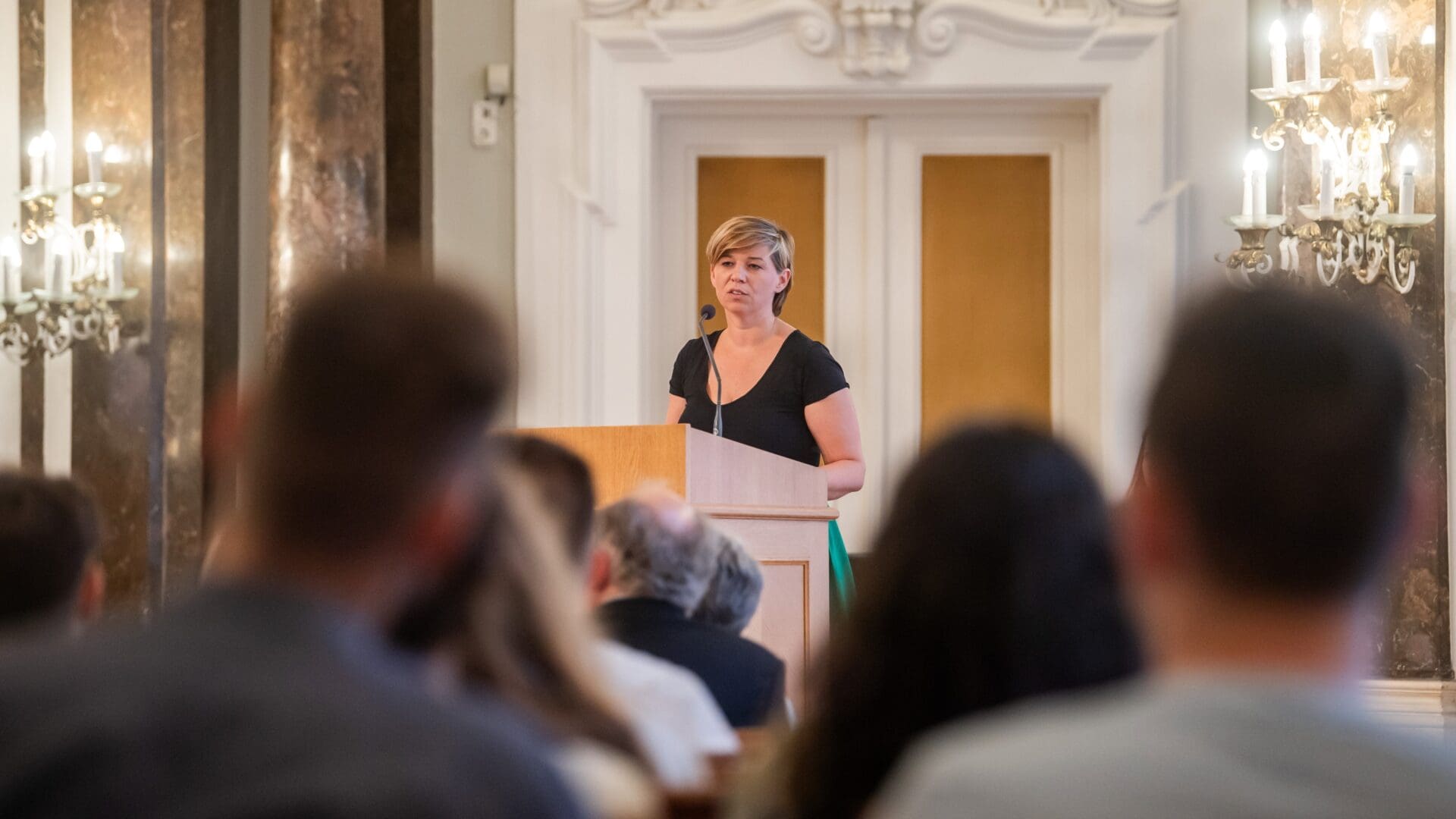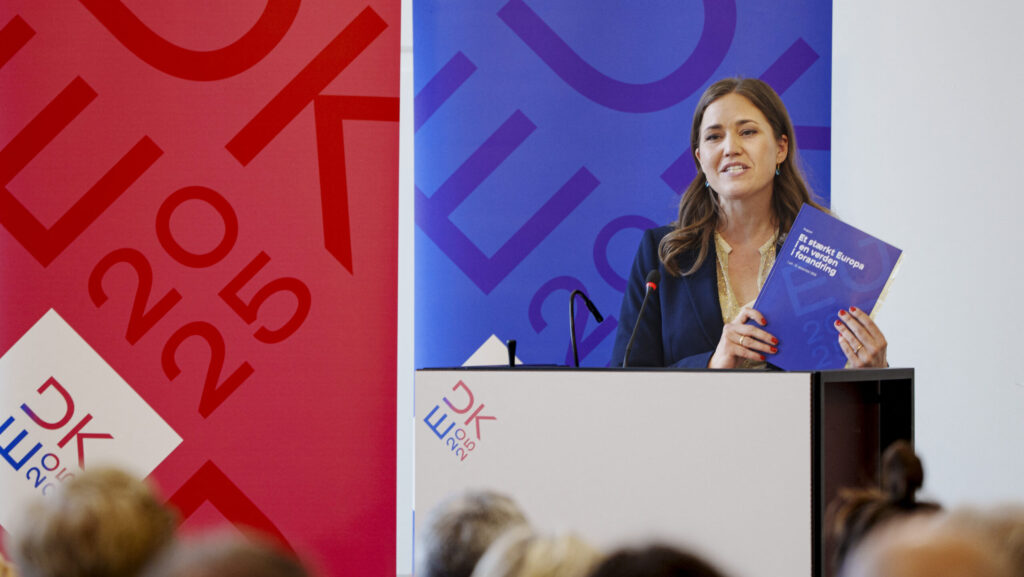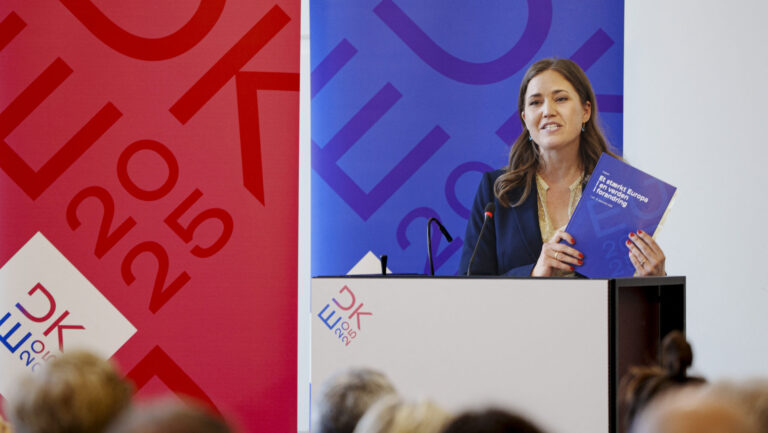‘Communities are important for Hungary, and therefore, the country supports their preservation and advocates for their interests with all its might,’ Tamás Menczer, State Secretary for Bilateral Relations at the Ministry of Foreign Affairs and Trade said in Budapest on Wednesday.
Tamás Menczer spoke at the opening ceremony of the Carpathian Basin Hungarian Summer University at Eötvös Loránd University (ELTE) and the Forum of Higher Education Institutions Beyond the Borders, emphasising that the liberal-left, mainstream position considers communities as outdated and unnecessary. In contrast, Hungary believes that communities represent fundamental values and, therefore, more should be built and strengthened. The state secretary pointed out that the liberal-left ideology wants to dismantle communities because communities are strong and challenging to influence, unlike individuals who can be dissuaded more easily from representing their own interests.
Menczer highlighted that this is evident in the case of the Russo-Ukrainian war, where Europe’s interest would be an immediate ceasefire and peace, as Hungary also advocates, but the EU does not share that view.
Hungary also supports Hungarian communities beyond its borders because ‘every Hungarian is responsible for every Hungarian’; at the same time, however, the government does not intend to dictate how Hungarians beyond the borders should live. Instead, it asks them what they need, the state secretary stressed.
He recalled that in recent years, the Orbán government has provided assistance for the construction and renovation of 900 nurseries and kindergartens beyond the border,
helping provide education in their mother tongue for 300,000 children.
The government has also contributed to the establishment or renewal of 1600 churches, parishes, rectories, and community centres beyond Hungary’s borders, beside having supported over 60,000 businesses in the total value of 215 billion HUF within the framework of economic development programmes.
According to Menczer, Hungarian foreign policy is based on respect: giving respect to everyone and expecting the same in return, in contrast to the period before 2010, when, as he said, Hungary could be ‘kicked around.’ He emphasised that Hungarian foreign policy represents Hungarian interests honestly and effectively, and the political stability in Hungary allows this, as the Orbán government has been given a strong mandate to lead the country four times in a row.
Deputy State Secretary for Higher Education at the Ministry of Cultural Affairs and Innovation Veronika Varga-Bajusz highlighted the challenges of preserving Hungarian identity beyond the mother country’s borders. She stressed the importance of creating opportunities for young Hungarians to study and work in their homeland, as it serves the development and strengthening of the Carpathian Basin as a whole. She stated that
as long as there are knowledge-seeking Hungarian youths, there is a Hungarian future.
Deputy State Secretary for National Policy Péter Szilágyi emphasised that the large number of participants in the summer university demonstrates that young Hungarians from the Carpathian Basin are willing to act in unity for the spiritual development and strengthening of the Hungarian identity. He mentioned that creating unity requires effort, and it is necessary to build communities by organising events where young people can come together, and find a common intellectual basis for understanding. He added that supporting young people is a strategic goal of the government that should be pursued even in difficult economic situations.
Vice Rector for International Affairs at ELTE Imre Hamar stated that this year’s 26th edition of the summer university welcomes 150 young participants from Transylvania, Carpathian Ukraine, Slovakia, and the Vojvodina region.
ELTE considers its role in the Carpathian Basin and in talent-grooming to be essential, and alongside the summer university, the institution organises the Forum of Higher Education Institutions Beyond the Borders, attended by representatives from 16 higher education institutions operating in neighbouring countries.
Related articles:








